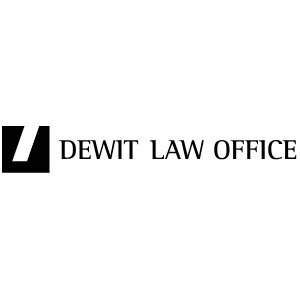Best Natural Resources Lawyers in Belgium
Share your needs with us, get contacted by law firms.
Free. Takes 2 min.
Or refine your search by selecting a city:
List of the best lawyers in Belgium
About Natural Resources Law in Belgium
Natural resources law in Belgium encompasses the regulations and legal frameworks governing the management, use, and conservation of natural resources such as water, minerals, forests, and land. Belgium's approach to natural resources is influenced by its federal structure, consisting of various regions with differing policies and interests. Each region - Wallonia, Flanders, and Brussels Capital - has its own set of laws and is responsible for managing natural resources within its territory. These laws are designed to balance economic interest with the sustainable preservation of resources, addressing both local and international environmental challenges.
Why You May Need a Lawyer
Clients may seek legal assistance in natural resources law for various reasons, including:
- Navigating complex compliance issues with regional or federal regulations.
- Resolving disputes over resource extraction rights, land use, or environmental impact assessments.
- Assisting companies with permitting and compliance involved in the natural resource sector such as mining or forestry.
- Guidance in negotiations or litigations concerning resource management or conservation policies.
- Advising on the acquisition or sale of land abundant in natural resources.
Local Laws Overview
The central principle of Belgium's natural resources law is sustainability. Several key aspects include:
- Regional Authority: The management and regulation of natural resources are mainly regional tasks, tailored to local needs and conditions, which can create a complex legal landscape for businesses operating across different regions.
- Environmental Regulations: These include compliance with EU regulations on environmental impact, biodiversity, and waste management, further integrated into local laws by each region.
- Land Use and Planning: Strict zoning laws and planning statutes can affect natural resource utilization, deforestation, and urban expansion.
- Permit Requirements: Varying requirements and processes for permits related to the usage of natural resources such as mineral extraction or water use.
Frequently Asked Questions
1. What is the role of each region in managing natural resources?
Each region in Belgium has its own regulations and policies for managing natural resources, reflecting local priorities and conditions. These can include land use planning, resource allocation, and conservation efforts.
2. How can I obtain a permit for resource extraction in Belgium?
The process for obtaining a permit varies by region and the type of resource. It typically involves assessments of environmental impact, consultations with local authorities, and compliance with EU regulations.
3. Are there different environmental regulations in Flanders, Wallonia, and Brussels?
Yes, each region has its own set of environmental regulations, though all are aligned with overarching EU standards. These local regulations further implement and expand upon EU laws based on regional needs.
4. What are the penalties for non-compliance with natural resource laws in Belgium?
Penalties can include fines, restoration mandates, suspension of permits, and even criminal charges in cases of severe violations. These penalties are enforced by regional authorities.
5. How does European Union law affect natural resource management in Belgium?
EU laws significantly influence natural resource management, requiring Belgium to comply with EU regulations and directives on environmental protection, conservation, and sustainable development.
6. What legal recourse do I have if a natural resource company violates regulations?
Individuals can report violations to regional environmental agencies or pursue legal action through administrative and civil courts, often with the assistance of a lawyer specializing in environmental law.
7. Can private individuals own natural resources in Belgium?
Ownership rights can vary, generally allowing private ownership of land but restricting certain natural resources to public ownership or requiring permits for their extraction or use.
8. How does natural resource law address renewable energy projects?
Law encourages renewable energy development, supported by regional incentives and taking into account environmental protection and zoning regulations for project approval.
9. What support does the government provide for conservation efforts?
The government, particularly through regional bodies, offers grants, subsidies, and technical support for conservation projects, aiming to protect biodiversity and promote sustainable resource use.
10. How can a lawyer assist with corporate natural resource management?
Lawyers can help navigate complex legal requirements, ensure compliance with both regional and EU regulations, negotiate deals, manage land-use permissions, and represent businesses in legal disputes.
Additional Resources
- Flemish Environment Agency (VMM) - Provides guidance and regulations for environmental management in Flanders.
- Walloon Agency for Air and Climate (AWAC) - Manages environmental and natural resource issues in Wallonia.
- Brussels Environment - Oversees regulations and natural resource policies in the Brussels-Capital Region.
- Belgian Federal Public Service Health, Food Chain Safety and Environment - Offers resources on international environmental commitments and public health impacts.
- European Environment Agency - Provides data, information, and guidelines on environmental matters across the EU.
Next Steps
Should you require legal assistance in matters of natural resources in Belgium, consider the following steps:
- Identify your specific legal needs and whether they relate to compliance, litigation, or advisory services.
- Research specialized lawyers or law firms with expertise in environmental and natural resources law within your region to ensure knowledgeable legal representation.
- Prepare any relevant documentation related to your issue, such as permits, contracts, or environmental assessments, before consultations.
- Consider scheduling a consultation to discuss your situation, potential legal challenges, and the best course of action.
- Stay informed about changes in laws and regulations related to natural resources to anticipate future legal requirements or opportunities.
Lawzana helps you find the best lawyers and law firms in Belgium through a curated and pre-screened list of qualified legal professionals. Our platform offers rankings and detailed profiles of attorneys and law firms, allowing you to compare based on practice areas, including Natural Resources, experience, and client feedback.
Each profile includes a description of the firm's areas of practice, client reviews, team members and partners, year of establishment, spoken languages, office locations, contact information, social media presence, and any published articles or resources. Most firms on our platform speak English and are experienced in both local and international legal matters.
Get a quote from top-rated law firms in Belgium — quickly, securely, and without unnecessary hassle.
Disclaimer:
The information provided on this page is for general informational purposes only and does not constitute legal advice. While we strive to ensure the accuracy and relevance of the content, legal information may change over time, and interpretations of the law can vary. You should always consult with a qualified legal professional for advice specific to your situation.
We disclaim all liability for actions taken or not taken based on the content of this page. If you believe any information is incorrect or outdated, please contact us, and we will review and update it where appropriate.
Browse natural resources law firms by city in Belgium
Refine your search by selecting a city.














